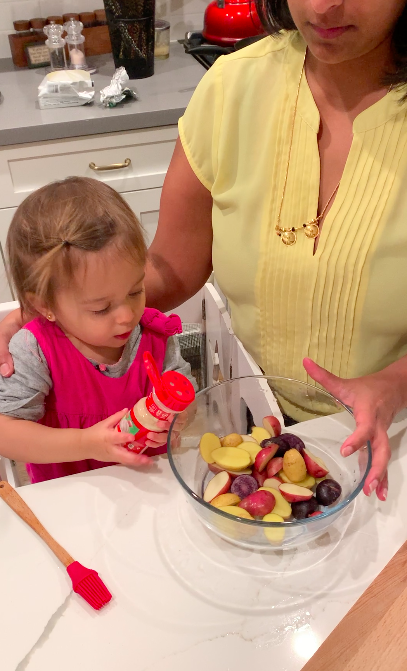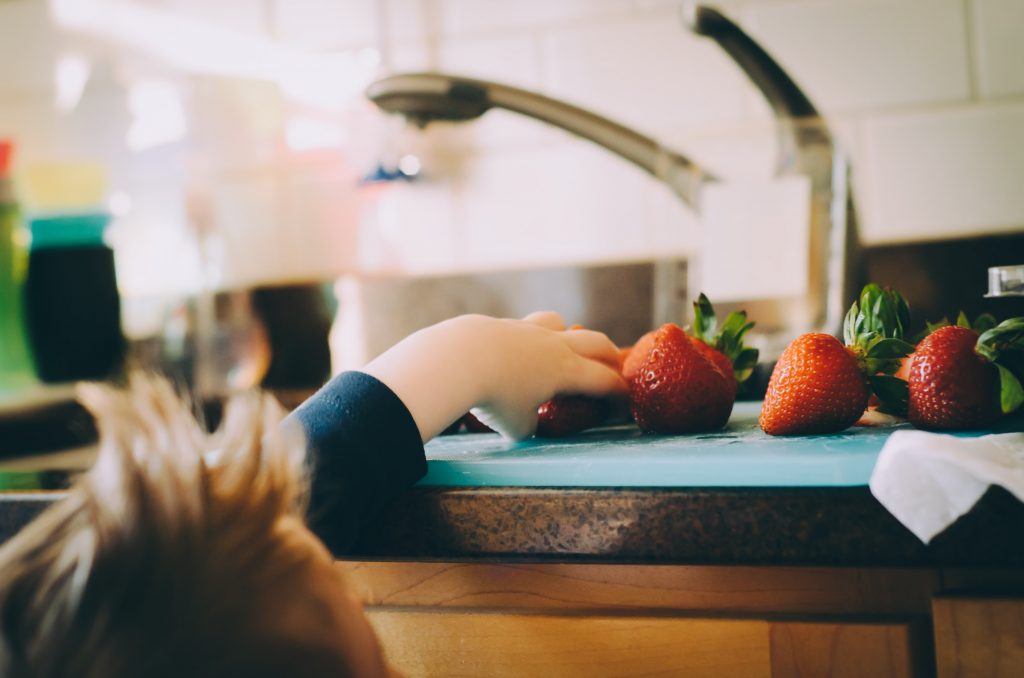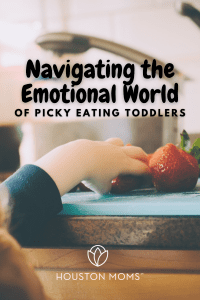Have you ever sat at the dining table and agonized while your toddler picks apart their meal and then attempts to throw most of it on the floor?
Reasons for Picky Eating
 It helps to understand some of the reasons why toddlers become picky after the age of 1.
It helps to understand some of the reasons why toddlers become picky after the age of 1.
Toddlers become discerning after the age of 1 and they start to reject novel or new foods. There are studies on this and there may be an evolutionary reason for it. This is why it’s so important to offer them as much variety as possible between 6 months to 1 year. Here is a link to a great article talking about this in more detail.
Toddlers start to eat less after the age of 1 because they just need less energy intake. In their first year they triple their body weight, and that weight gain slows down after year 1. So if you notice a drop in food intake that is completely normal.
Toddlers go through many changes, physically and emotionally. We know how much connection emotions and food intake have, so don’t be surprised when their appetites change weekly if not daily. They also start to develop their own likes and dislikes, so be patient as they navigate their relationship with food.
Managing your Emotions
 I have and the feeling is not fun or easy to navigate. I want to talk to you about how I have found ways to manage my emotions during some of these meal times. While there are plenty of websites and sources on how to help prevent picky eating, there is not a lot of information out there on how to manage your own emotions. There are many logical reasons why you should not get angry when your toddler starts to become picky after the age of 1, but logic doesn’t usually prevail when you have to dump the entire meal in the trash. Here are some ways in which I manage my emotions:
I have and the feeling is not fun or easy to navigate. I want to talk to you about how I have found ways to manage my emotions during some of these meal times. While there are plenty of websites and sources on how to help prevent picky eating, there is not a lot of information out there on how to manage your own emotions. There are many logical reasons why you should not get angry when your toddler starts to become picky after the age of 1, but logic doesn’t usually prevail when you have to dump the entire meal in the trash. Here are some ways in which I manage my emotions:
- I put less effort into her meals during picky phases. When she rejects them I find I take it less personally. Remember delicious does not mean time-consuming.
- I cook things I enjoy so that I can happily consume her leftovers and there is zero wastage.
- Divide meal supervision with your partner if possible, the more the frustration is distributed the less intense it feels.
- Reframe the rejection. The meal rejection is not a rejection of you or your efforts, it is simply them trying to have some agency with what they put in their bodies.
Solutions to Reduce Picky Eating
 While managing your emotions is key, it is also helpful to have some solutions on hand to reduce the severity of picky eating. Here are tried and tested methods we have used in our home and I hope you can use them as well
While managing your emotions is key, it is also helpful to have some solutions on hand to reduce the severity of picky eating. Here are tried and tested methods we have used in our home and I hope you can use them as well
- Having my toddler help prepare the meal has been a huge game-changer. She tends to eat more while prepping the food simply because she can’t help but try the ingredients.
- Exposing her to a variety of food pictures and textures away from mealtime has helped her have an understanding of what she is eating.
- Take your toddler grocery shopping and let them pick out a favorite fruit or vegetable. Giving them choices in the process helps them have control of the meal process.
- Make omelet stations, salad stations, or taco stations. This once again helps with the concept of choice. The more choices they make before the actual eating begins the more in control they feel.
These are just a few tips and tricks on how to navigate picky eating; the real test is in managing your own emotions while your toddler navigates the world of food. it is difficult, so remember to give yourself lots of grace and most importantly try to have fun during mealtimes. Food is so much more than calories and weight gain; you are creating lifelong memories during these family dinners.













